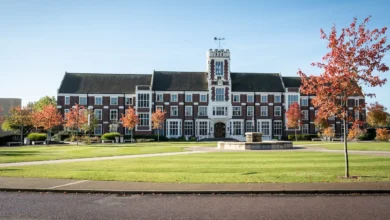‘Dramatic’ rise in undergrads taking paid work in term time
According to HEPI, students were reporting a significant drop in independent study hours as they juggle employment and academic demands

Register to get 1 free article
Reveal the article below by registering for our email newsletter.
Want unlimited access? View Plans
Already have an account? Sign in
A growing number of students are working during term time, with 68% of full-time undergraduates now undertaking paid employment alongside their studies, according to new findings.
The Student Academic Experience Survey (SAES) 2025, published today (12 June) by Advance HE and the Higher Education Policy Institute (HEPI), shows a “dramatic” rise from 56% in 2024 and 42% in 2020.
According to HEPI, students were reporting a significant drop in independent study hours as they juggle employment and academic demands, with an average of 11.6 hours per week, down from 13.6 hours in 2024.
The survey also found that perceptions of value for money have dipped slightly, as 37% of students regard their course as good value, compared with 39% last year. Meanwhile, 29% view it as poor value.
Student satisfaction improved in some areas, however, with 26% of students saying their experience exceeded expectations, up from 22% in 2024 and double the figure recorded in 2021.
Elsewhere, the speed of assessment feedback improved “significantly”, with 61% of assignments now returned within two weeks, compared with 45% in 2024.
When asked what they would choose if deciding again, 11% of students said they would pursue a non-university route, up from 6% last year.
For the first time, the annual survey, based on responses from more than 10,000 full-time undergraduates across the UK, asked about expectations around mental health provision. Some 40% of students said universities should offer comprehensive mental health support, including for complex cases.
It also explored how prior qualifications affect student experience. Those entering with T-levels or International Baccalaureate qualifications reported higher perceptions of value for money, and T-level students were most likely to say their expectations had been exceeded.
The experiences of international students also came under focus. Some 77% work during term time, compared with 65% of UK students. While 35% said their experience exceeded expectations, only 49% would choose the same course and institution again.
Advance HE chief executive Alison Johns said: “While the higher education sector faces significant financial challenges, it’s encouraging to see evidence of resilience in the student experience. The quality of teaching and assessment feedback remains strong, and more students are having their expectations exceeded than ever before.
“However, the striking increase in students undertaking paid work alongside their studies signals a fundamental shift – and institutions will be thinking carefully about how they accommodate this change. We need to consider how teaching, learning and support can evolve to better serve students who are balancing multiple commitments while maintaining academic quality.”
Nick Hillman, director of HEPI, said: “This is an extraordinarily important survey because it is not sanitised like some of the official surveys, because it has been running for two decades and because it is large, covering over 10,000 students each year.
“The benefits of tracking students over time are proven this year because we can see in positive ways that the post-Covid generation of undergraduates are doing better than their immediate predecessors.”
He added: “However, not everything is rosy for either students or institutions. Given the severe funding challenges, many students are struggling to pay their bills and institutions are often struggling to provide their students with what they expect, though both students and staff have also displayed considerable resilience in the face of adversity.
“The fact that a large majority of students now undertake paid work during term time, and often at a high number of hours each week, suggests the student experience is completely different to the norm when today’s policymakers were in higher education.”




